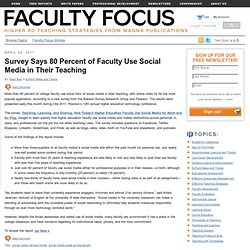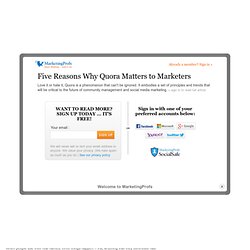

What the F**k is Social Media NOW? This Is What a Sabbatical at Twitter Looks Like - Wired Campus. Representation of Twitter Traffic During the World Cup Courtesy of Miguel Rios College Park, Md.

—When Twitter traffic is laid out on a graph, revealing patterns emerge. Data from the night President Obama announced that Osama bin Laden was dead show a sharp drop in posts at the moment the news was revealed, as if the country took a collective gasp. Courtesy of Miguel Rios “You can see the various aspects of the country nervously watching,” said Jimmy Lin, an associate professor at the University of Maryland’s College of Information Studies, in a talk, “Visual Analysis at Twitter.” Mr. He works 12 hour days from his home in Maryland, keeping up with graduate students in the morning and then remotely joining his Twitter software-engineering team in California to spend the rest of the day programming.
The professor, who specializes in natural-language processing and data visualization, shared some of those “interesting things” in his talk Wednesday. For Mr. Return to Top. Survey Says 80 Percent of Faculty Use Social Media in Their Teaching. April 22, 2011 By: Mary Bart in EdTech News and Trends More than 80 percent of college faculty use some form of social media in their teaching, with online video by far the most popular application, according to a new survey from the Babson Survey Research Group and Pearson.

The results were presented early this month during Cite 2011, Pearson’s 12th annual higher education technology conference. The survey, Teaching, Learning, and Sharing: How Today’s Higher Education Faculty Use Social Media for Work and for Play, sought to learn exactly how higher education faculty use social media and makes distinctions across personal, in class, and professional (on the job but not while teaching) uses. The survey included questions on Facebook, Twitter, Myspace, LinkedIn, SlideShare, and Flickr, as well as blogs, wikis, video (both on YouTube and elsewhere), and podcasts. Some of the findings of the report include: To access the report, go here »
How Social Media is Changing Education [INFOGRAPHIC] Almost everywhere there is a sign, a text message, or an ad that says, “Like us on Facebook” or “Follow us on Twitter!”
![How Social Media is Changing Education [INFOGRAPHIC]](http://cdn.pearltrees.com/s/pic/th/changing-education-infographic-26689811)
Social media has spread to almost all aspects of our lives – from corporate America to shopping – and now to higher education. The shift in communication continues to evolve and create new opportunities for learning and teaching. Here are some interesting facts on how colleges are leveraging social media inside and outside the classroom: •Social media is not just popular among the younger generation. The use of social media among older faculty (those teaching more than 20 years) is only slightly lower than that of young educators. •Some colleges are now accepting a one minute long YouTube video as a substitute for the traditional college essay. •61% of educators say they have a Facebook account and 12% of them say they use it to communicate with students. •40% of educators report having a YouTube account and 21% of them report using it to communicate with students.
-Lauren. 0211-diagnostic.pdf. Five Reasons Why Quora Matters to Marketers. Love it or hate it, Quora is a phenomenon that can't be ignored.

After using Quora for a few months now, I've come to appreciate that it embodies a set of principles and trends that will be critical to community management and social media marketing in the future. Many companies already plan to integrate community as a core part of their offering; they have at least five good reasons for adding Quora to the mix. 1. Real People and Real Context Unlike so many answer sites, Quora encourages you to use your real name. When people use their real names, three things happen.
Second, when people opine in public and their real names are associated with their comments, the quality of the content increases dramatically and the bad behavior and flaming drops proportionately. Third, when people use their real names, they can start to build reputation, which engages them with and invests them in Quora. 2. 3. 4. 5. Quora matters for many things.